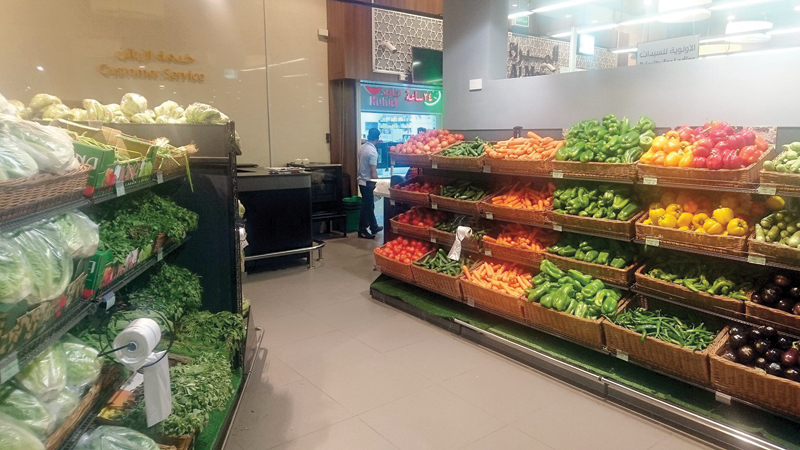

An ambitious food security strategy spearheaded by the Omani government over the past several years has led to significant improvements in domestic food production capacities, according to a report compiled by the Supreme Council for Planning.
The contribution of the local agriculture, livestock and fisheries sectors — in value terms — accounted for 49 per cent of the total value of food supply available for consumption in the Sultanate last year, up from 36 per cent in 2011.
Overall self-sufficiency in local food production versus food imports stood at 79 per cent in 2018, while locally produced foodstuff accounted for 58 per cent of total food items available for consumption last year, the report noted.
“The Sultanate devotes utmost attention to the issue of food security and food supply and has developed a wide array of plans and programmes focused on the security and sustainability of food supply for nationals and expatriates,” said the National Committee for Achieving Sustainable Development Goals, a task force operating under the auspices of the Supreme Council for Planning.
According to the National Committee, the Sultanate has developed a comprehensive food security strategy (2020-2040) that sets out a number of objectives aimed at enhancing Oman’s food security apparatus in terms of production, import, storage, and distribution. This strategy has three broad pillars: food demand, local food production and securing imports.
At the same time, The 2040 Sustainable Agriculture and Rural Development Strategy in Oman aims to promote agricultural sector sustainability, increase economic revenues, create job opportunities for nationals, support rural communities, and limit structural imbalances in the agricultural sector.
These initiatives have led to a significant uptick in Oman’s ranking in the Global Food Security Index, which evaluates a country’s standing with regard to standing with regard to: food availability, access to food, stability of food supply, food safety and quality. Out of 113 countries ranked in the 2018 Index, Oman was placed a relatively admirable 29th.
Further improvements in Oman’s food-related indicators and global rankings are anticipated when a substantial portfolio of investments in food sector projects materialize starting from later this year. These investments, spearheaded by the wholly governed owned Oman Food Investment Holding Company (OFIC), will result in an exponential increase in the domestic production of milk, dairy products, poultry, eggs, red meat, fresh fruits and vegetables, among a host of other value-added processed goods.
Other public sector entities, backed by the wealth funds of the Sultanate of Oman, are investing in large-scale aquaculture farms — onshore and offshore, mega fisheries schemes, date processing ventures and other initiatives.
The Ministry of Agriculture and Fisheries has also put together a large portfolio of projects for development under the Public-Private-Partnership model.
Oman Observer is now on the WhatsApp channel. Click here



